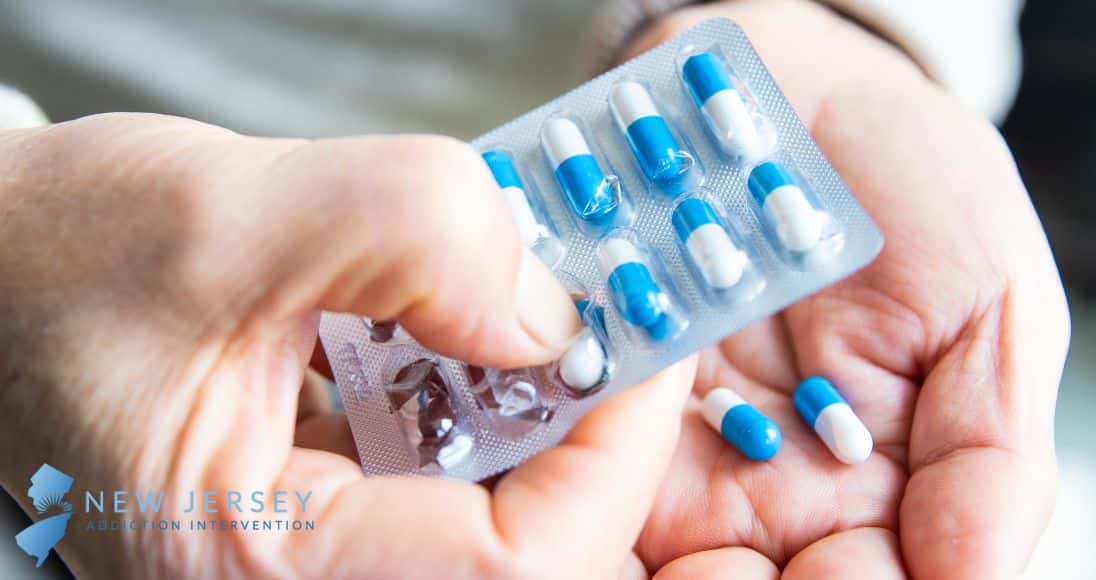Addiction is a chronic and progressive disease that affects millions of Americans each year. According to the Centers for Disease Control and Prevention (CDC), one in seven people report experiencing a substance use disorder in the United States.
There are many addictive substances out there. When you think of addiction, you probably imagine crack, heroin, meth, or alcohol. While these are common drugs of abuse, there are other substances to be wary of.
Gabapentin is a prescription medication used to treat seizures, neuropathic pain, and conditions like restless leg syndrome. While it can provide medicinal benefits, you might have heard of people abusing gabapentin to get high. Unfortunately, gabapentin misuse can lead to addiction.
Understanding why gabapentin is addictive and the risks of abusing it can prevent you from going down a path of substance abuse.
What is Gabapentin?
Gabapentin is an anticonvulsant that is prescribed under the brand name Neurontin. This medication can prevent seizures and alleviate nerve pain by affecting a neurotransmitter known as gamma-aminobutyric acid (GABA). Some of the conditions gabapentin treats include epilepsy, postherpetic neuralgia, hot flashes, and restless leg syndrome.
The common side effects of Neurontin include:
- Drowsiness and dizziness
- Fatigue
- Weakness
- Headaches
- Tremors or shaking
- Vision changes
- Coordination issues
- Anxiety or nervousness
- Memory problems
- Strange thoughts
- Eye movements
- Nausea and vomiting
- Heartburn
- Diarrhea or constipation
- Appetite and weight changes
- Flu-like symptoms
- Backaches or joint pain
While gabapentin can be useful for a wide range of conditions, some people misuse it. In high doses, gabapentin can cause feelings of relaxation and euphoria. These symptoms can quickly become habit-forming.
Is Gabapentin Addictive?
Gabapentin works to treat seizures by reducing abnormal electricity in the brain. However, larger doses of the substance might cause mind-altering effects like dizziness, euphoria, and feelings of relaxation, making some people tempted to abuse gabapentin.
If you take large doses of gabapentin or mix it with other substances like alcohol, you could develop an addiction. Over time, your brain and body will begin to rely on it to function properly. This means that you will experience withdrawal symptoms when you stop using gabapentin.
The withdrawal symptoms associated with gabapentin include:
- Excessive sweating
- Tremors or shaking
- Fast heart rate and high blood pressure
- Insomnia
- Irritability and agitation
- Depression and suicidal thoughts
- Cravings for gabapentin
- Gastrointestinal issues
If your doctor prescribes gabapentin, you should never take more than you are instructed to. Taking large amounts could lead to a gabapentin overdose, which can be life-threatening without medical intervention. If you believe you are experiencing an overdose, contact 911 immediately.
What are the Signs of Gabapentin Addiction?
Addiction can be difficult to spot, especially when you are the one struggling with it. Substance abuse causes you to begin rationalizing the reasons you are misusing a drug like gabapentin. As a result, you should familiarize yourself with the signs of gabapentin addiction.
The common signs of gabapentin addiction include:
- Running out of prescriptions early
- Taking larger doses of gabapentin than you are prescribed
- Visiting more than one doctor to receive multiple prescriptions for gabapentin
- Lying about symptoms to receive gabapentin
- Having a hard time controlling how much gabapentin you use
- Drinking alcohol or taking opioids to increase the effect of gabapentin
- Experiencing urges or cravings to misuse gabapentin
- Needing more gabapentin to experience the desired effect
- Dealing with withdrawal symptoms when you stop using gabapentin
If you are suffering from gabapentin addiction, it’s time to seek help. Drug rehab programs can help you treat addiction with a combination of medical detox, evidence-based therapies, and relapse prevention planning.
Risks of Gabapentin Abuse and Addiction
If you are trying to understand why it is wrong to misuse gabapentin, it’s time to start taking a look at the long-term risks. First, using large amounts of any substance puts you at risk of experiencing an overdose. Getting high on gabapentin requires taking large amounts, therefore increasing the chances of overdose.
Other risks of gabapentin abuse and addiction include:
- Experiencing mood and behavioral changes
- Increased symptoms of depression and anxiety
- Developing memory issues and temporary amnesia
- Weakening of the muscles over time
- Developing tremors in your hands or legs
- Experiencing blurry or double vision
- Changes in your appetite that lead to weight gain
- Developing peripheral edema
- Dealing with aggression or agitation
- Experiencing suicidal ideation or attempts
Gabapentin abuse can lead to many different health complications, so it is best to avoid it altogether. If you are currently abusing Neurontin, an addiction treatment center can help you begin your recovery journey.
Find Help for Gabapentin Abuse
Gabapentin addiction is a complex condition that requires extensive treatment. Drug rehab programs can offer the tools and support you need to recover. Reputable programs offer a combination of medical detox, evidence-based therapies, and coping skills to ensure their clients stay sober.
At New Jersey Interventions, we can help you find a program that suits your needs. Additionally, if your loved one is in denial about their gabapentin abuse, we can facilitate an intervention to convince them to seek help.
Our innovative and solution-based techniques will help guide your loved one to the drug and alcohol rehab facility that will best meet their individual needs. We will be with you every step of the way. If you or a loved one requires addiction resources for drugs and alcohol in Edison, New Jersey, contact us today for an assessment.
Contact us today to learn more about how New Jersey Interventions can help you overcome gabapentin addiction.
Medically Reviewed: April 17, 2024

All of the information on this page has been reviewed and verified by a certified addiction professional.

